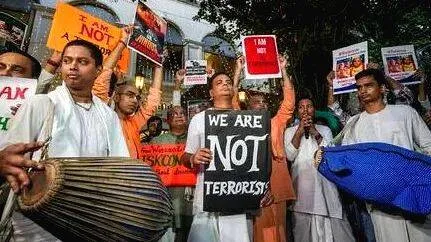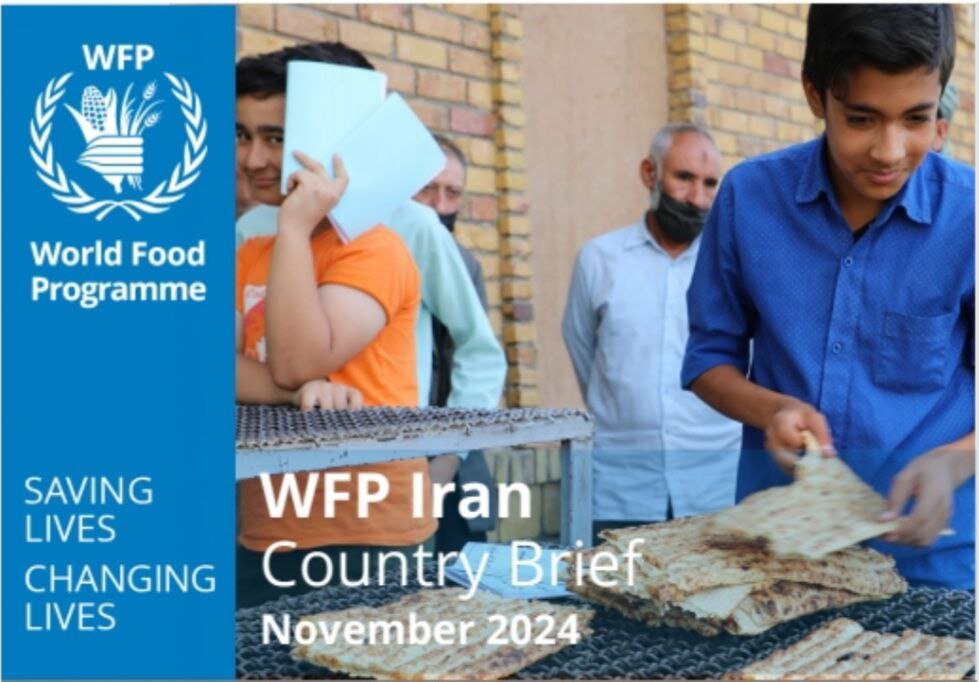
The political upheaval in Bangladesh, culminating in Prime Minister Sheikh Hasina’s resignation in 2024 following a student-led uprising, has destabilised the country and also strained its relationship with neighbouring India. The rise of an interim government under Muhammad Yunus has presented new opportunities, but the ongoing atrocities and ethnic cleansing of minorities, particularly Hindus, have compounded the crisis. These events have strained the already fragile cooperation between India and Bangladesh.
As Bangladesh navigates this tumultuous period, the path toward rebuilding bilateral ties depends on addressing the political instability and the historical grievances surrounding minority rights. Political Uncertainty and Governance Challenges The political crisis in Bangladesh began with widespread protests against Prime Minister Hasina's administration, which escalated into a national movement calling for democratic reforms and an end to authoritarian rule. Initially sparked by demands for changes in the public sector employment quota, the protests grew into a broader call for political freedom and transparency.

This unrest eventually led to Hasina’s ouster and the installation of an interim government under Muhammad Yunus. Yunus, known for his work in micro-finance and global humanitarian efforts, faces the challenge of leading a deeply divided country. His administration is tasked with stabilising Bangladesh, ensuring free and fair elections, and addressing the people's grievances.
However, the political landscape remains volatile, and the interim government’s ability to foster national reconciliation and political stability remains uncertain. Ethnic and Religious Persecution: Hindus and Other Minorities A major issue complicating the political and social fabric of Bangladesh is the persecution of religious minorities, especially Hindus. Historical violence against Hindus, dating back to the 1947 Partition and the 1971 Liberation War, continues to reverberate today.
The 1971 war itself saw a disproportionate share of atrocities committed against Hindus, with millions killed, displaced, or subjected to violence. Unfortunately, this history of violence and land dispossession has continued in recent years. The 2021 Durga Puja violence serves as a chilling example.
During the celebrations, widespread attacks on temples and Hindu houses happened; all incited by mere social media rumours. Reports suggest that at least 20 temples were attacked, and many families were forced to flee. More recently, incidents of land grabbing and the forced displacement of Hindus from their homes have become all too common, particularly in rural areas of Bangladesh.
Despite constitutional guarantees of equality and religious freedom, Hindus and other minorities continue to face systemic discrimination. The political and economic marginalisation of these groups not only violates their rights but also exacerbates social divisions, making it difficult for Bangladesh to build a truly inclusive society. Economic Crisis: Specific Challenges and Statistics Bangladesh is also facing an acute economic crisis, exacerbated by political instability.
The country’s economy, which has been growing rapidly in recent years, has been severely impacted by the twin crises of political unrest and the global economic slowdown. Unemployment has surged to 10.5% in 2024, a sharp increase from 4.
2% in 2023. The country’s manufacturing sector, which employs millions, has been particularly hard-hit by the liquidity crisis. Thousands of small and medium enterprises have shut down, and large factories have either reduced operations or closed completely.
Inflation has become a significant problem, with the consumer price index reaching 9.4% in 2024, driven largely by skyrocketing food and energy prices. This is a sharp increase from 5.
3% in 2023, and it has placed immense pressure on Bangladesh’s poor and middle-class families. The rise in energy prices has been especially difficult, as Bangladesh faces energy shortages due to disputes over power imports from India. The electricity dispute with India, particularly with Adani Power, has resulted in a 30% reduction in electricity imports to Bangladesh, causing widespread power outages and hampering industrial productivity.
As a result, the Bangladesh government has been forced to rely on costly alternatives like fuel oil to meet energy demands, further straining its finances. Role of International Actors: Geopolitical Implications The political and economic instability in Bangladesh also draws the attention of major international actors, each with its own interests in the region. India’s Intelligence and Diplomatic Response: Was There a Missed Opportunity? One of the critical questions emerging from Bangladesh's political crisis is whether India’s intelligence agencies were adequately prepared for the scale and intensity of the unrest.
India’s intelligence agencies, particularly RAW (Research and Analysis Wing) and IB (Intelligence Bureau), are responsible for monitoring developments in Bangladesh due to the historical, cultural, and strategic ties between the two nations. However, the sudden eruption of protests and the subsequent regime change seem to have caught Indian agencies off guard. While political instability in neighbouring countries is always difficult to predict, there seems to have been a gap in assessing the rising discontent within Bangladesh.
The growing dissatisfaction with Hasina's administration was likely underestimated, and the role of student-led protests, initially seen as localized unrest, might not have been fully captured in Indian intelligence assessments. Additionally, the international influence in Bangladesh, particularly from figures with global ties like Yunus, may have been overlooked in India's analysis, which has implications for the diplomatic response to the crisis. India’s intelligence community, despite its success in monitoring external threats, must now adapt to the increasing complexity of Bangladesh's internal politics.
The growing external influence in Bangladesh, particularly from China and Pakistan, calls for a more nuanced and proactive approach to monitoring both domestic political movements and the role of international stakeholders..











